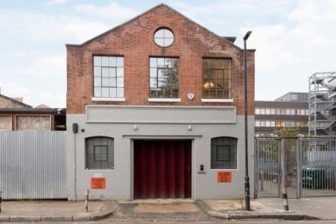 A Russian financier has lost a tax dispute over his £5.75m property in London after claiming the house was partly commercial – meaning he paid a vastly reduced level of stamp duty.
A Russian financier has lost a tax dispute over his £5.75m property in London after claiming the house was partly commercial – meaning he paid a vastly reduced level of stamp duty.
Andrei Tretyakov, who loves entertaining, acquired the 5,000 square foot, converted bacon-smoking factory in June 2021. Tretyakov paid just £277,000 in stamp duty land tax (SDLT), using mixed dwellings relief to reduce this from £761,250.
But he quickly became embroiled in a row with the taxman over a possible bill of almost £500,000. A tribunal has now upheld the bill.
The Bacon Factory in Kennington was bought by Tretyakov who was chased by HMRC for the remaining £484,250, which the Russian businessman appealed at the First Tier Tribunal (FTT), attempting to prove that the building was not entirely residential.
Tretyakov, the founder of Blue Wire Capital, a hedge fund firm based at the address of the Bacon Factory, claims that he was informed by Nest Seekers, the estate agency selling the property, that the mixed use rate of SDLT would apply.
Nest Seekers, which has been operating in the UK since 2020, featured on a BBC 2 TV show in 2023.
But according to HMRC, estate agency Nest Seekers International had made no suggestion the property was fit for business use.
Two witnesses, Mark and Lauren Stephen – the previous owners – lived at the property at the time of purchase and appeared as witnesses for Tretyakov, which tribunal judge Robin Voss said was “relevant”.
However, Christopher Jones, litigator for HMRC, suggested that the couple who lived on the premises were threatened with legal action from Tretyakov if they did not give evidence to HMRC.
Judge Voss said: “In any event, our clear conclusion, having heard Mr and Mrs Stephen give their evidence under cross-examination, was that they answered the questions put to them openly and honestly.
“For the most part we therefore accept the evidence which they have given although we note that there were one or two minor inconsistencies between their witness statements and their oral evidence which we do think can be attributed to a desire to stress the commercial use of the building.”

The building was originally built for smoking bacon, but in 1985 permission was granted for the two top floors to be converted to residential premises. The couple rented these floors, while the previous owner used the ground floor for a sculpture repair business.
Mark Stephen then bought the whole property from his landlord, stripped the building and completely renovated it, installing a 900-bottle wine cellar, sunken car parking spaces, a sauna, games room, 40-foot bar, as well as modernising the entire building, creating what Caldera described as a ‘high end private residence’ on its website.
But in the promotional material for the building, Nest Seekers, the estate agent selling the property, said: ‘The current owner has, quite frankly, gone to town. Yes, we are talking about a 40-foot private bar and games room. This is a fully stocked, fully functioning bar, the like of which you do not see in a private house; this is a gaming table, this is a pool room, and this is a bespoke 900-bottle wine cellar.’
Stephen’s solicitor producing contracts based on the property being for commercial use. Tretyakov stated the ground floor was used as a factory on his SDLT return.
Despite the rest of the property being converted into a residential property, Patrick Cannon KC, barrister for Tretyakov, argued that the ground floor of the property was not suitable for living. This was because the ground floor had been renovated to be used as a gin factory and bar by Stephen, however, this never came into fruition. Additionally, Mrs Stephen used one room of the property for her business.
Cannon backed this up by using planning restrictions which stated the ground floor could not be residential, and this should be given “significant weight”.
When asked about the descriptions from the construction firm, and the estate agents, Cannon said: ‘These are just designed to attract business or to sell the property, they cannot be relied on as an accurate description of the property.’
Jones disagreed, stating that the historic use of a building could not be relied upon in these circumstances, as since 2019 the current owners had not used it as such.
Judge Voss said: “Taking all of the factors into account, we have no hesitation in concluding that the ground floor of the Bacon Factory was suitable for use as part of the overall dwelling at the date of completion of the purchase by Mr Tretyakov.
“We do not accept Mr Cannon’s distinction between hospitality and living. An area used for personal hospitality can be just as much part of a dwelling as rooms that are used on a daily basis.
“In addition, we can see no possible reason for having a sauna on the ground floor other than for it to be used as part of the dwelling.”
The appeal by Tretyakov was dismissed and he was given 56 days to appeal the decision.
An HMRC spokesperson said: “We welcome this decision, which confirms our position that the building was purely residential and the higher rates of SDLT applied.”
Read the orginal article: https://propertyindustryeye.com/estate-agency-accused-of-misinforming-buyer-who-lost-500k-stamp-duty-battle/


